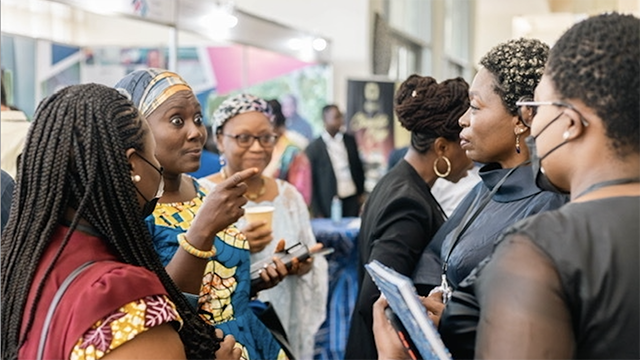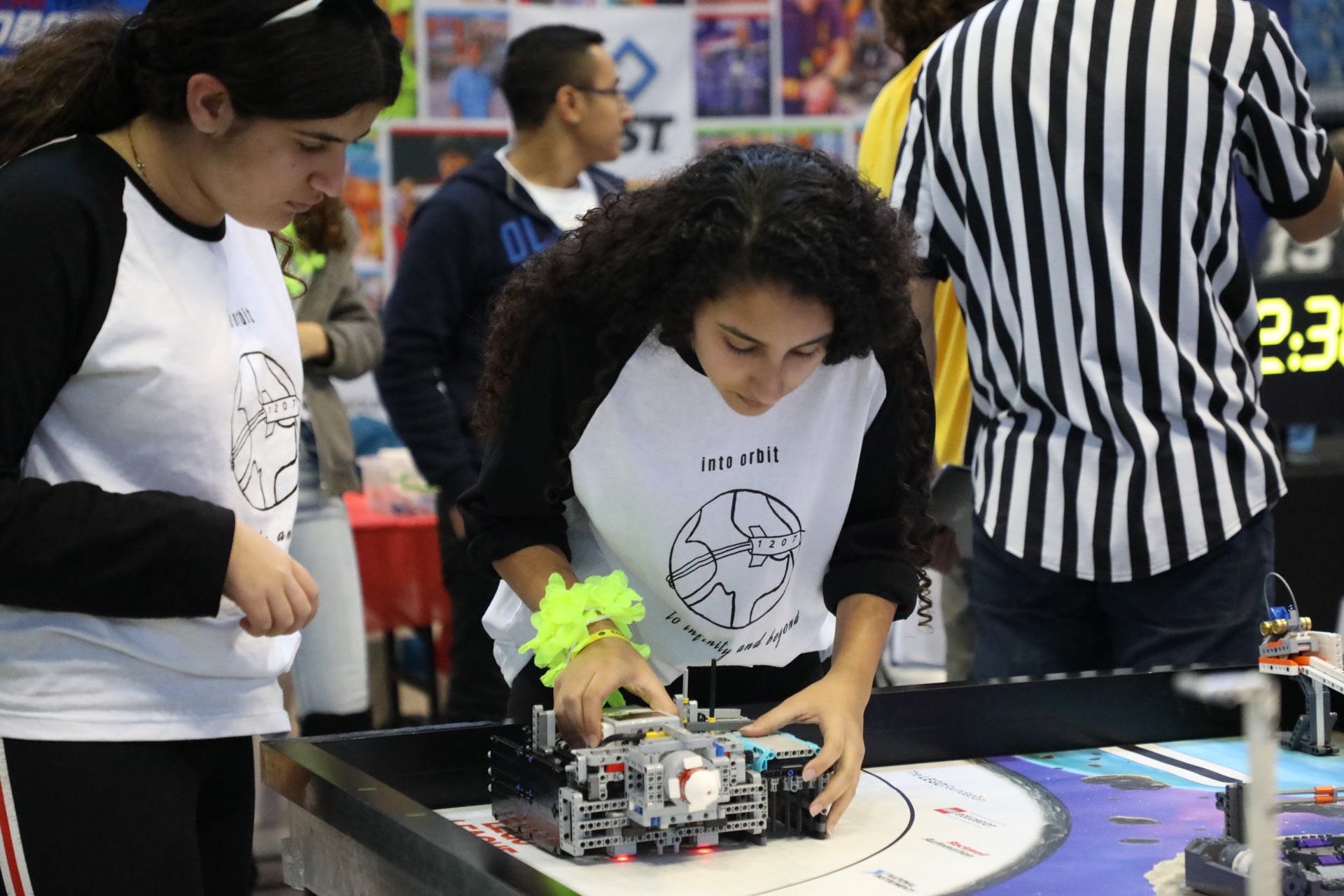 While the previous two presidential debates focused primarily on domestic issues, Monday night’s final debate will spotlight foreign policy and national security exclusively. The potential topics to be covered are wide-ranging, but we should expect it to focus heavily on the Middle East, with attention also given to China, Russia, the defense budget, and Afghanistan. As both candidates prepare for the debate, what I yearn for—and what I believe the American public yearns for—is a move away from tired sound bites and loose rhetoric used to score political points. Instead, the public deserves a thoughtful exchange on what to expect when it comes to America’s role in the world under the next president.
While the previous two presidential debates focused primarily on domestic issues, Monday night’s final debate will spotlight foreign policy and national security exclusively. The potential topics to be covered are wide-ranging, but we should expect it to focus heavily on the Middle East, with attention also given to China, Russia, the defense budget, and Afghanistan. As both candidates prepare for the debate, what I yearn for—and what I believe the American public yearns for—is a move away from tired sound bites and loose rhetoric used to score political points. Instead, the public deserves a thoughtful exchange on what to expect when it comes to America’s role in the world under the next president.
Engaging Nations in Transition
Two months ago, hardly anyone expected foreign policy to play a decisive role in the election. But in retrospect, how can we be surprised? The Middle East again reared its head and exploded onto the public consciousness with the brutal September 11 assault on our consulate in Benghazi, which struck at the heart of American dignity on a sacred day. The attack claimed the lives of some of our country’s finest public servants, including my friend and colleague Ambassador Christopher Stevens. Calls for investigations are appropriate, but we should avoid the knee-jerk reactions of disengagement, and risk the temptation to politicize this tragedy.
Ambassador Stevens exemplified the forward-leaning diplomatic engagement with the Arab world during this tumultuous period of transition that I believe is crucial in maintaining and extending American influence in the region. I am looking for a discussion during the debate tonight that provides a road map for engaging this strategically important region. Transitions to democracy are long and messy, and require a strong commitment to the region as it undergoes its vulnerable transition. We need to remain dedicated to broadening our engagement with the Arab world.
One path to engagement is through bolstering efforts of citizen-based diplomacy through public-private partnerships such as Partners for a New Beginning, which I chair at the Institute. Established in response to President Obama’s Cairo speech, we have not been derailed by the challenges of the ‘Arab Spring,’ we have been emboldened by them. While I resist the label of ‘Arab Spring’ because of its misplaced emphasis on the ease of transition, I do believe that the region remains in the midst of a challenging, sometimes violent, but ultimately promising renewal. US policy must stay focused on engaging the Arab world as it navigates this renewal, specifically through overcoming the deep system deficits identified by the United Nations Development Programme ten years ago; the deficits of knowledge, freedom, opportunity for women, and economic prosperity.
Dealing with a Contemporary al-Qaeda
By all accounts, al-Qaeda’s leadership has been decimated; most notably by the killing of Osama bin Laden, which is an incredible and undeniable achievement for American national security. Both candidates need to tell us how they will handle the next iteration of al-Qaeda, given the decentralized proliferation of extremist groups in Yemen, Libya, Syria, and Egypt, and al-Qaeda’s emerging strength in Africa. We have withdrawn our troops from Iraq and are winding down in Afghanistan, but deep-seeded issues remain—the pursuit of stability, security, and pluralism. Let’s hope the candidates tell us what they have in mind. What are America’s remaining equities in those conflicts? The ultimate issue of what is in America’s interest is at stake—what will we sacrifice to defend these interests?
Israel and the Iran Nuclear Threat
The US’ bilateral relationship with Israel and the Iranian nuclear program are two complex and interdependent issues, both of which are expected to play a significant role in the debate. The deep and historical bipartisan support for the US-Israel relationship is important and should not be contested. But let’s move beyond the rhetoric so we can hopefully learn how the candidates will engage Israel on Iran and other important issues facing the region. The US-Israel relationship has been a cornerstone for over 60 years, and I don’t need to hear which candidate is closer to the state of Israel, as both are. What I hope to hear is how both candidates will engage Israel on the vexing issue of Iran, and also of ending the Arab-Israeli conflict. Recent reports indicate that the Iranians are willing to meet one-on-one with the Americans after November 6; let’s ask the candidates how they will use this historic opportunity. This could provide an opportunity to avoid the looming specter of military engagement. The debate offers what may be the last opportunity for the candidates to clarify their positions for the American people on this critical issue.
Our Complex Agenda with China
While the Middle East will likely form the core of the debate’s discussion, US policy towards China, our largest trading partner, will get considerable airtime. November is a month of transition for China as well as America—China will begin its once-in-a-decade leadership transition on November 8. Will the candidates offer grounded and realistic assessments of our bilateral relationship with China? What will the candidates tell us about their proposed engagement with the new Chinese leadership? Or will the public again hear only the bluster and heated rhetoric that has defined the campaign? The next president will be presented with a complex agenda with China, which we need no reminder is crucial to the US economic recovery. Will we hear more about being tough on currency manipulation, or will we hear the texture and granularity of a policy agenda that balances competing concerns with realpolitik—the kind of agenda that may get us both to where we need to be, engaging one another?
Righting the Course with Russia
We have faced challenges balancing engagement and disengagement with Russia. Russia’ relapse to authoritarianism under Putin, its provocations of American interests, and its defiant rhetoric paint the false portrait of a rising foe ready to challenge America. Is Russia America’s # 1 geopolitical threat, as Romney says? I don’t believe so. Russia’s economy is in shambles, its gas revenues are being slashed by the shale boom in the United States, and its ability to project power beyond its borders has been diminished—evidenced by its lingering support for the failed Assad regime. How will the candidates chart a path of righting the ship of state with Russia?
Impending Defense Budget Cuts
The defense budget affects our ability to address all of these issues. If strategy is the careful calibration of ends and means, then the discussion of the defense budget could offer a rare glimpse into each candidate’s true foreign policy priorities. The public needs to understand the post-election reality that automatic across-the-board budget cuts will occur if Democrats and Republicans cannot agree to a budget. Failing to reach such an agreement would not only be irresponsible, it would also have profound consequences for the execution of our national security. I hope the candidates will put the real budget math on the table, and explain how they plan to meet revenue and tax cuts while beginning to tackle reducing the deficit. Some argue that in the 21st century the US military needs to be more nimble and should be restructured, which has cost considerations. How about another idea: A merged national security budget that supports our diplomats and enhances embassy security, along with continuing to support our military?
Regardless of which issues are raised, the debate promises to be a provocative exchange of opinions on many of American statecraft’s most challenging concerns. These are contentious issues that will require true bipartisan leadership. The picture that emerges from consideration of all of these issues should be a clear depiction of America’s role in the world. Amid the crossfire of opinions on America’s world standing, let’s show the world in this debate that we are Americans, that we are strong, and that we have the big ideas, creativity, and will to engage one another to resolve the problems that confront us. It is important in this basket of foreign policy issues that the candidates engage in substance, take some risks, and move beyond the sound bites. I am ready to listen, and I am sure America is as well.
Kevin Jones contributed to this piece.

